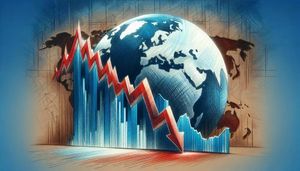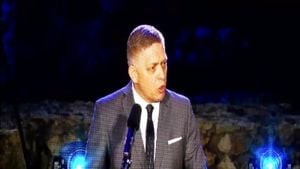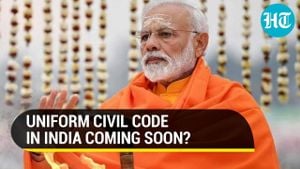A recent inquiry has shed light on the complex circumstances surrounding the poisoning of Yulia Skripal, which took place on March 4, 2018, along with her father, the former Russian spy Sergei Skripal. Dr. Stephen Cockcroft, the Intensive Care Unit (ICU) consultant who treated both individuals shortly after their arrival at Salisbury Hospital, provided testimony at the Sturgess Inquiry, recounting his reactions upon discovering Yulia had woken from her sedation.
Dr. Cockcroft expressed his initial disbelief at Yulia's recovery, stating, “I was gobsmacked; this was a girl I never thought I would see move again.” His remarks captured the shock felt by medical staff who had treated her during such dire circumstances. Upon waking, Yulia was reportedly crying and appeared terrified as she attempted to get out of bed, prompting Dr. Cockcroft to rush to her side.
During her brief moment of consciousness, Dr. Cockcroft asked Yulia several questions, including whether she or her father had been attacked or sprayed with anything. He told her, “Your father is in the next room, we think you have been poisoned.” Unfortunately, this interaction led to serious repercussions for him. After the incident, Dr. Cockcroft was removed from the ICU rota, signaling the beginning of his difficult experience following the poisoning event.
"Apparently by having had a conversation with Yulia Skripal I had been unprofessional and should have left such a conversation to the security services," he noted. Dr. Christine Blanshard, the medical director at the hospital, was the one who enforced this decision, and Dr. Cockcroft stated she considered his actions inappropriate due to their sensitive nature.
The hospital staff had initially suspected overdose, as Salisbury had seen a surge of drug overdose cases leading up to the incident. Dr. Cockcroft noted he was alerted to the possible poisoning when informed by another medical professional about the Skripals' background. The suggestion to Google Sergei Skripal catalyzed his realization, highlighting the urgency and importance of the situation.
Dr. Cockcroft described Yulia's clinical state upon arrival as gravely concerning, believing her to have endured severe brain damage. He maintained his routine practice of acknowledging patients even when unconscious, which was why he felt it was necessary to communicate with Yulia when she awoke. "You can’t just not talk to them,” he said, emphasizing his duty as a caregiver and communicator.
After his discussion with Yulia, Dr. Cockcroft faced intense scrutiny. Following the incident, hospital protocol unexpectedly shifted—they convened meetings to keep the medical staff from discussing the incident publicly. The way hospital management discouraged conversations and sharing knowledge significantly hampered the opportunity for collaboration among medical professionals, especially during similar cases.
He pointed out how timely sharing the symptoms exhibited by the Skripals could have saved lives, particularly recalling the subsequent death of Dawn Sturgess due to novichok exposure just months later. According to the inquiry findings, 87 people had self-reported to the emergency department, alarmed they might have been affected by the same nerve agent.
Upon reflection, Dr. Cockcroft articulated his feelings of frustration about being isolated from discussions of the poisoning. He had been eager to share his observations of the Skripals’ symptoms but was consistently sidelined, even during training lectures intended to inform medical staff about the peculiarities of poisonings.
“It was something I will never forget. That’s something I felt people need to know,” he commented, stressing the importance of communication among medical personnel during crisis situations.
The inquiry also highlighted the lack of comprehensive strategies taken by health professionals following the incident. The reluctance to disseminate knowledge and train staff adequately on recognizing the signs of novichok poisoning diminished their responsiveness amid public concern.
Dr. Cockcroft's testimony reflects broader issues within the healthcare system, especially under circumstances involving biological weapons. This incident raises questions not just about medical protocols, but also about the interrelation of healthcare and security measures. It hints at the underlying tensions between professional medical practices and overarching governmental policies.
The inquiry continues as officials work to piece together the events and methodologies surrounding Yulia and Sergei Skripal's poisoning and the tragic death of Dawn Sturgess. The revelations from Dr. Cockcroft’s testimony will likely influence how officials manage such crises and prepare for future incidents.



